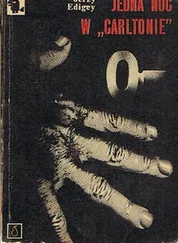Hearts rocked under cast-iron domes that beat for all their might in their own rhythm, even though it was all directed by Messerschmidt. His voice was entirely buried in their music. It seemed to us that we pulled the ropes, but it was they that pulled us up and let us down. We flew up, and we fell down, like apprentice angels. Sexton Messerschmidt told the entire unhearable story of the great Wittenberg bell.
“That’s right, that’s right. The great bell comes from the castle church in Wittenberg,” Sexton Messerschmidt’s gaping mouth dumbly told the tale. “The generous folk of Wittenberg made an offering of that bell to the oppressed folk of Cieszyn, so that they, listening to the very same tones to which our Reformer, Dr. Martin Luther, listened, might not grow weary in their reformatory zeal. That’s right, that’s right, gentlemen, the great bell rang in the tower of the castle Church of St. Paul. It rang on that cold October morning when our Reformer, with the help of a sixteenth-century hammer, nailed his ninety-five theses on the topic of indulgences to the church door. If you gentlemen will listen carefully,” Sexton Messerschmidt turned his face upward, “if you gentlemen will listen carefully, you will hear that the passionate banging of the Lutheran hammer has settled forever in the tone of the great bell, and it echoes in it quite clearly even now. That is to say,” in Messerschmidt’s unheard narration there echoed an almost audible venomous accent, “that is to say, if you are pious, you will hear it. The impious, Bolsheviks, pagans, and other slayers of Catholic girls won’t hear a thing. For the might of our bell is based not only on the fact that its tone surpasses other tones, but that it also absorbs other tones and records them in the abysses of its substance. That is the reason why it is said that all of our bells are Wittenberg bells, although we also have a Swedish bell and a Radziwiłł bell. But the great Wittenberg bell surpasses them, it leads them, it absorbs their voice, and it bestows its own voice upon them. Listen, listen, and you will hear, in the transparent, cold, October air (the first snows lurk in the clouds over Wittenberg), you will hear the banging of the irascible hammer, piercing the parchment with iron nails.”
•
I strained my ears, I slowly dressed, and more and more clearly I heard blows that were, admittedly, not irascible, but regular and forceful. An inky glow filled the kitchen. Someone had screwed a deep blue light bulb, left behind by the Germans, into the lamp that was hanging over the table. Mr. Trąba stood on a stool and nailed a large gray blanket to the window frame with unexpected skill.
“A black-out like during the occupation, like during the occupation, Chief, only even stricter. Verdunkelung sensu largo . Stricter, because under the Germans we were younger and often, especially after we’d had a glass, hastier. Stricter,” Mr. Trąba sighed heavily, “stricter, because we are passing from the phase of theoretical debate to the phase of praxis .”
With the lightness of a youth, he jumped down from the stool and occupied his place at the table. First of all he glanced intently at Father, then, I suppose absolutely by chance, since after all he couldn’t see me — I had hidden among the coats in the entryway, and I was spying through the crack of the open door — and so, absolutely by chance, Mr. Trąba glanced in my direction, was silent for a moment, and then began to speak in an especially stifled but at the same time solemn voice.
“Chief. I will speak off the top of my head, since, obviously, I didn’t make any notes. Notes in our case mean certain deportation. I believe I remember everything, and I’ll be able to say everything. If, however, it should turn out that my memory, impaired by excessive doses of the world, should bring me to some reprehensible lapse, I insist you call it to my attention. Gentlemen!” Mr. Trąba took too copious a gulp of air, like an inexperienced swimmer, which made his theatrically altered voice resound even more strangely. “Gentlemen! Comrade Gomułka lives in Warsaw at 7 Frascati Street, on the second floor of a five-story building that was built in the twenties. Functionaries of the security police occupy one of the apartments on the ground floor. There are six of them. They take shifts, three at a time, to cover twenty-four hours. They are armed, of course, even though they are demoralized by the peace and shameful — that’s right, shameful —renunciation of the tradition of uprising that has reigned in our land for years. Practically the entire time, yes, the entire twenty-four hours of their shift, passes in card play. Mostly they play poker, although one of the shifts prefers gin rummy or a game called ‘tail,’ about which I know nothing more. They play for high stakes, sometimes even for ten złotys per point. This proves conclusively that bribery as a means of attaining our goal no longer comes into consideration. Unless first, in order to acquire the appropriate means, we rob a bank, or even several banks. As you gentlemen know perfectly well, the great terrorists, both Asiatic and European, operated in this manner. I fear, however, that we can’t afford to join this tradition in any strict fashion, to follow faithfully in the footsteps of the classics of terror. Anyway , as the English say. All the guards who watch over Comrade Gomułka’s safety know the taste of alcohol perfectly well, to put it mildly. More often than not they take a few nips while on duty, which might seem to create the impression of carelessness and lack of responsibility. Gomułka, like every disciplinarian in a position of leadership who lacks even a hint of a sense of humor, combats every sociable frivolity connected with work with all severity. He himself reaches for the bottle rarely, and he must always have a reason for it, moreover a reason that is exceptionally solemn, which puts him in the category of alcoholic layman and makes me, personally, utterly disgusted by his person. As you gentlemen know perfectly well,” in Mr. Trąba’s voice there sounded the note, which I knew well, that heralded the genre of the selfless epic, “as you gentlemen know perfectly well, alcoholic laymen who drink exclusively for solemn reasons or on festive occasions belong to a despicable category. The true artist of spirits drinks exclusively without a reason and without an occasion. What is more, he avoids — like an aristocrat — the typical occasions on which common mortals plunge themselves into the swamp of unexpected transports. Gomułka gets drunk exclusively on New Year’s Eve. I really don’t know a manifestation of worse taste. That’s not all. On New Year’s Eve he gets drunk with exceptionally repulsive methodicalness. Namely, around 9:00 in the evening he makes his appearance in the ballroom (usually in the Palace of Culture and Science, if it is the ‘Ball of the Working People,’ or in the assembly hall of the Warsaw Polytechnic, if it is the ‘Ball of the Citizens of the Capital’). He takes his seat at the head table, and he doesn’t budge from the spot until midnight. With relish, bending his neck in that characteristic way of his, he observes the absolutely spontaneous (of course!) merry-making. He sips moderately at a first, then takes a second glass. He doesn’t dance. When, however, the midnight hour strikes, the beast in him is awakened. True, not right away, for first he stands and raises a toast to the New Year: ‘Comrades, Citizens, Working People. The passing year was a year of strenuous labor and further advancement of economic progress. .’ But as soon as he has finished his toast, the first secretary immediately marches off to battle. He begins to drink more. True, he drinks with repulsive methodicalness, but he drinks greedily, and with great strides he surrenders himself to the art of dance. He renders compliments. He takes active part in the choral singing of proletarian songs, and he finishes his merry-making around 6:00 in the the morning in a state of absolute alcoholic dementia. If not for the tiny detail that this is a man constantly divorced from reality, you could say that once a year Comrade Wiesław divorces himself from reality. I once planned. .”
Читать дальше












